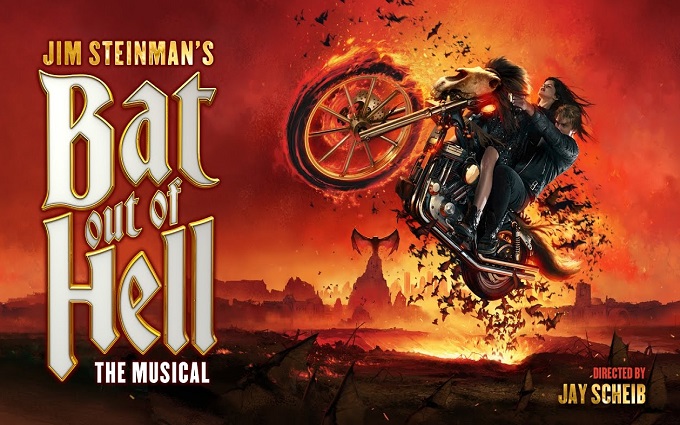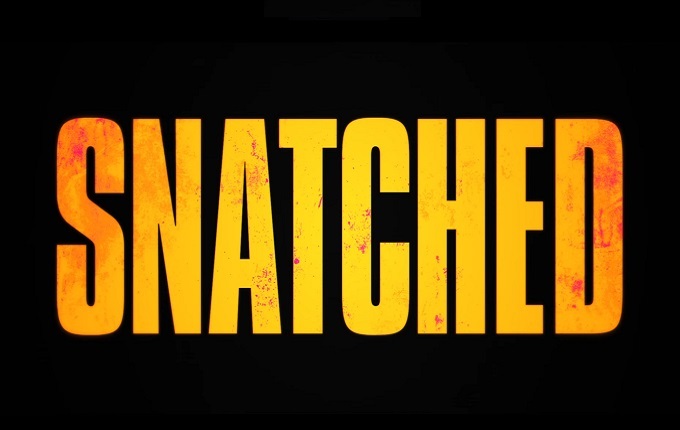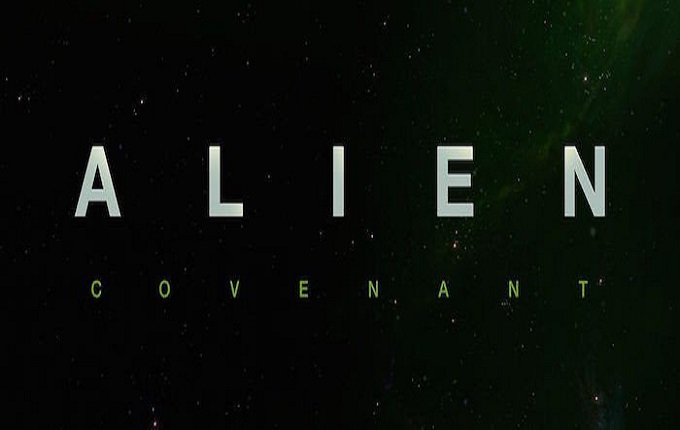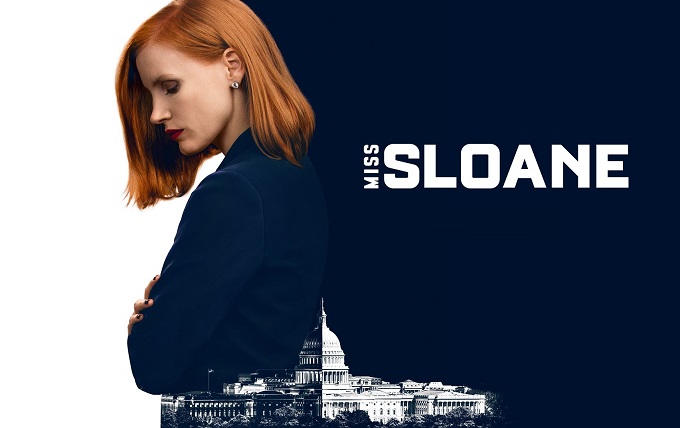Transformers The Last Knight Review

The Plot
Optimus Prime searches the cosmos for the creators of the Transformers while back on earth mankind wages an increasingly desperate battle against both the heroic Autobots and evil Decpeticons. As hidden secrets of Transformers history are revealed it sets Earth and the planet Cybertron on a collision course that threatens the survival of both worlds.
The Good
Toy loving youngsters and die hard older fans will enjoy the typical promotional push that comes with another big screen instalment of Transformers. Even if the film almost inevitably doesn’t live up to the hype it’s still another huge public celebration of the much beloved franchise. Young audiences will obviously at least enjoy the loud carnage of fighting robots. While critics and more mature fanboys may once again be left vocally disappointed, in truth many young fans will be oblivious to their concerns and instead merely delight in seeing Bumblebee and Optimus Prime back on screen. While some franchises have consciously matured with their core audiences over time, Transformers remains committed to securing the giddy excitement of 6 year olds. Regardless of any other failings the film at least offers fan a scale of spectacle befitting a budget of hundreds of millions of dollars. Against that vast canvas of generic blockbuster grade destruction the film also offers a few rare treats such as a welcome Stanley Tucci cameo and a bigger dose of Robot Dinosaurs and Dragons.
The Bad
The Transformers film series under Michael Bay’s disappointingly persistent control continues to repeatedly make the same mistakes, ignoring consistent criticisms with a stubbornness fuelled by the sagas seemingly bulletproof financial success. The guaranteed box office returns delivered by global audiences hoping to finally see a film which delivers on the vast potential of the enduringly popular franchise merely emboldens Bay to carry on regardless. Once again leaving dejected anyone not seeking the most mindless explosion drenched CGI distractions.
Summer blockbusters can and arguably should be crowd pleasing fun, unfortunately there’s a vast array of shortcoming and obvious problems which largely prevent Bay’s Transformer’s saga from delivering that.
Bay’s myopic focus on CGI intricacies and excessive pyrotechnics at the expense of basic elements of storytelling remains a fundamental problem. As usual, human and robot characters alike are treated as disposable props moved clumsily through a story designed solely to facilitate a series of predetermined action set pieces. Mark Wahlberg still feels noticeably misplaced as the series leading man, bumbling through extraordinary adventures with mundane Bostonian bravado. Former Oscar winner Anthony Hopkins phones in a paycheck performance as an eccentric old plot device, while Bay’s latest token eye candy Laura Haddock struggle valiantly to maintain Oxford professor credibility in a bust boosting cocktail dress.
A serious criticism of Bay’s past Transformers films was that the robots were frequently based on heavy handed racial stereotypes. Bay himself has previously acknowledged these concerns and had vowed to ensure some of the most ‘offensive’ characters didn’t feature in future instalments. Unfortunately the new robots introduced in this film include a snooty British butler and the arrogant Hot Rod complete with an embarrassingly exaggerated French accent. They join a team of robots that already includes a sword wielding Samurai, a cockney hard man and a blustering big gutted American gun nut voiced gregariously by John Goodman.
Bay might offer the defence that it’s just a way of injecting identifiable personality into the alien robots and making the film more internationally accessible for global audiences. But like much of the film’s humour it’s hard to ignore the reality that it often feels lazy and perhaps even a little inappropriate. It would be easier to ignore these choices if the rest of the human cast wasn’t equally two dimensional and consistently drawn from cliché stereotypes.
Ironically for a franchise built almost exclusively around showing off the latest polished special effects wizardry the fact that the film was only partially shot for IMAX means that the aspect ratio changes frequently during scenes. Not everyone will notice this technical quirk but for anyone who does it’s an annoying distraction that worsens already surprisingly messy editing. The action sequences often feel noticeably disjointed as cameras cut between badly mismatched shots trying frantically to capture the practical effects of never-ending explosions, CGI of wildly varying quality and also advance the frequently jumbled narrative.
The film attempts to expand and rewrite the “mythology” of Transformers by integrating it with the overly familiar Arthurian legend of the Knights of the Round Table. Sadly it ultimately takes the franchise even further away from the winning original premise of the good Autobots fighting the evil Decepticons as ‘robots in disguise’. The ultimate result is a painfully long 150 minute mess packed with embarrassingly muddled subtext and woeful dialogue that fails utterly to be funny or dramatic with alarming consistency. The film lurches constantly between Bay’s trademark vacuous lingering shots and horrible shaky cam urgency both equally lacking in meaning or any hint of genuine emotion. There’s something innately hurried and seemingly half-finished about almost every aspect of the plot and production, producing an experience so mindless and joyless that it actually manages to become unforgivably undeniably boring.
The Ugly Truth
Anyone left disappointed by the past Transformers films will almost certainly leave cinemas yet again regretting the price of admission. If you truly want to see a different kind of Transformers film the only real alternative is to stay away this… It’s time to take the camera away from Michael Bay.
Review by Russell Nelson
Bat Out Of Hell The Musical Review
 The Plot
The Plot
In a dystopian future wild teens wander the apocalyptic streets, mysteriously never aging past 18 years old. The tyrannical Falco rules high above them with his wife and rebellious daughter Raven trapped in a luxurious skyscraper. Until a forbidden romance between Raven and Strat, the rock and roll leader of the Lost youth, threatens to tear both worlds apart.
The Good
Meatloaf’s epic musical collaboration with composer Jim Steinman remains one of the highest selling and most iconic albums of all time. Originally created with the intention of being a theatrical production, after over 40 years Steinman finally realises that dream to the delight of long term fans and new audiences alike.
As crowd pleasing ‘jukebox’ musical Bat Out of Hell draws upon a truly unique collection of songs, made even more powerful by audiences existing familiarity. Few West End productions can boast soaring power ballads with even half the power of I’ll Do Anything For Love. It’s simply an enjoyable embarrassment of musical riches to parades hits like Dead Ringer For Love, Two Out Of Threes Ain’t Bad and the titular Bat Out Of Hell.
Meatloaf is one of the most instantly recognisable and powerful vocalists in rock history, so it’s a massive compliment to the entire West End cast that they are able to fully match that note perfect power and collectively reimagine his popular back catalogue. Aided by elaborate production value and the grandeur of one of London’s most lavish Theatre spaces the musical fully succeeds in avoiding ever feeling merely like skilful karaoke. There’s genuinely electrifying atmosphere to these live performance that gives audiences so much more than watching a YouTube medley of Meatloaf music videos ever could.
Bat Out Of Hell has assembled a talented cast of seasoned theatre veterans and undaunted newcomers. The shows core quartet of Rob Fowler, Sharon Sexton, Christina Bennington and Andrew Polec all deserve considerable praise for vocally flawless performances and for bravely tackling some of the more cringe inducing dialogue. The show often nods to self-awareness of its more ridiculous elements and the cast’s consistently earnest and enthusiastic performances carry audiences through those moments with a confident smirk.
Though the first act lurches often from the sublime to the ridiculous an indisputably stronger second act sees the show deliver a steadier stream of musical spectacle less often interrupted by silly narrative elements. Uncertain audiences are likely to be won over entirely as the show finds its feet and struts through a succession of iconic power ballads with their rapturous support. Having adjusted to the somewhat weird and wonderful world of Bat Out Of Hell The Musical audiences are ultimately left with the simple truth that these songs are uniquely entertaining and meaningful in the way only rock anthems truly can be.
The Bad
Meatloaf’s unique brand of gothic rock opera is widely appealing, but there are still some who are of course less enthralled by its kitsch charms. Those reluctant to embrace the ostentatious vocal theatrics of Meatloaf and Jim Steinman’s elaborate compositions are unlikely to find that opinion altered by the transition to stage. Indeed those that specifically object to the self-indulgence of 10 minute long power ballads will only be left more exhausted by a series of them tied together by sparse dialogue and a frequently bizarre narrative.
Shamelessly gothic production design and a near constant use of heavily stylized video projections may also divide audiences between those who love the camp fun factor and those left unsure how seriously to take anything. Likewise while Steinman’s lyrics have always been elaborate and wildly melodramatic, without the swooping support of symphonic guitar riffs that same language risks becoming outright laughable dialogue during the connecting scenes. Though of course that bare chested crudely poetic silliness is an entertaining guilty pleasure in its own right.
Though the show undeniably captures much of what millions of fans love about Meatloaf, amplifying those distinctive traits won’t win over everyone and especially those who find endless rock opera more draining than delightful.
The Ugly Truth
Bat Out Of Hell soars onto stage with triumphant performances of the most beloved rock ballads. The show pays loving tribute to the unique charms of Meatloaf while equalling his legendary live performances, especially in a relentlessly spectacular second act. After 40 years this new musical is a unique addition to the West End and essential viewing for existing fans and those discovering these song for the first time alike.
Review By Russell Nelson
Snatched Review

The Plot
Stuck with a non-refundable exotic holiday for two after a breakup, a directionless young woman resorts to taking her reluctant mother along instead. Unfortunately the dysfunctional pair get much more adventure than they ever bargained for when they venture outside of the safe confines of their holiday resort and get swiftly caught up in a world of violence, kidnapping and death.
The Good
Goldie Hawn returns to the big screen and quickly proves a good partner for Amy Schumer as the pair work their way through all the typical mother/daughter dysfunctions. Schumer likewise clearly benefit from having someone consistently in place to play against. If the film had been attempted as solo vehicle with Schumer’s character facing her Latin American misadventures alone it would surely have proved unwatchable. Thankfully the leading ladies are a comfortable match and it helps spread the comedic responsibilities around.
Though the film is noticeably heavy handing in shoehorning Wanda Sykes and Joan Cusack into the supporting cast, ultimately they deliver enough scene stealing laughs to justify the overtly clumsy way the film introduces them. Their contribution is good enough to make the lengthy set up it requires feel like it was at least worth it. Likewise The Mindy Project star Ike Barinholtz manages to deliver surprisingly consistent laughs as Schumer’s geeky housebound brother. He keeps what could so easily have been a pointless sub-plot distraction frequently amusing instead.
Writer Katie Dippold and producer Paul Feig manage to dramatically improve on their critically and commercially drubbed Ghostbusters reboot. This time Dippold’s script succeeds in at least crafting a fair few satisfying set pieces, one liners and supporting characters. Though Schumer still regularly steers proceedings towards her own most comfortable territory at least Dipplod’s script keeps the comedy a little more diverse. Schumer’s signature shtick is undoubtedly more appealing when diluted down.
At least Snatched is never dull or disgusting in the way so many similarly themed low brow movies become. To that extent it does surpass the lowest expectations even if it falls short of achieving truly memorable success.
The Bad
While Snatched represents an unquestionable vast improvement on Amy Schumer’s infamously disliked recent Netflix comedy special, those that loath Schumer’s trademark style of lazy self-deprecation will undoubtedly find her character in Snatched yet another unappealing prospect.
Schumer’s default self-loathing caricature of someone utterly oblivious, selfish and slovenly is fast becoming overly familiar. It also persists in making her readily embraced and self-proclaimed status as a feminist icon feel deeply ironic. The only thing that really saves Snatched is that it isn’t as egocentric and one note as Schumer’s self-obsessed stand up material.
While Goldie Hawn’s return to the big screen is indeed welcome, it’s a little strange to see the famously precocious star now morphed fully into a neurotic mother role. Perhaps after a self-imposed sabbatical and career lows like The Banger Sisters this is likely a deliberate decision though.
Snatched does much to help writer Katie Dippold and producer Paul Feig atone for the unmitigated disaster of their female fronted Ghostbusters flop, however it’s still the same kind of set piece slapstick cringe comedy that will divide audiences between giggles and groans. For example, watching Schumer get inevitably caught attempting to wash her vagina in a public bathroom is either amusingly awful or just awful, depending on your point of view…
The Ugly Truth
Snatched certainly won’t win over those already firmly opposed to Amy Schumer, but it offers enough genuine laughs to mostly amuse audiences seeking a simple guilty pleasure. Goldie Hawn’s welcomed resurgence and a scene stealing Wanda Sykes are also notable positives.
Review by Russell Nelson
Alien Covenant Review

The Plot
The crew of the spaceship Covenant find themselves unexpectedly awakened from hyper sleep while carrying 2000 people to settle a colony on distant planet. Discovering a strange message emanating from a mysterious seemingly perfect planet leads them to deviate from their carefully laid plans in the hopes of finding an even better new home for their new colony…
The Good
Prometheus was largely derided by the fans and critics for a lack of iconic Aliens in an Alien prequel, for Covenant the trailers and posters were emphatically clear that the recognisable monster would be horrifically present.
Covenant also retains one of the rare positives of Prometheus in keeping Michael Fassbender in the cast, this time in dual roles as prototype android David and his successor Walter. Alongside Fassbender the addition of the competent acting talent of Billy Cudrup, Danny McBride and Katheirne Waterston help give at least a little personality to the endangered Covenant crew.
Alongside these familiar faces the overall look, design and visual effect success of the film is evidently its strongest asset. The classic HR Geiger creature design and dark visual motifs of the saga, combined with credible future tech give the film at least a polished visual credibility.
The film’s expensively crafted science fiction world, frequent bloody action and unashamed philosophising will no doubt keep fans with those particular combined appetites entertained.
The Bad
The largest single criticism of Ridley Scott’s first prequel Prometheus from fans and critics was that it failed in its self-declared intention to finally explain and expand upon the more mysterious elements of the original film. Decades of fan speculation and intrigue surrounding possible explanations for the origin of the crashed alien spaceship and the actual ‘Aliens’ created a truly powerful mystique. Unfortunately it also created a very high level of expectation for revelations of actual answers. Prometheus utterly failed to provide those answers, leaving frustrated long term fans and bemused newcomers with yet more unanswered questions.
With Covenant Ridley Scott had a second chance to finally deliver a more satisfying and coherent film capable of filling a growing list of gaping plot holes, unfortunately this simply does not happen. If anything Covenant further confuses and undermines the existing mystique of the saga in favour of predictable plot twists and heavy handed philosophising.
Covenant fails to resolve the Prometheus mysteries surrounding the alien ‘engineers’ or to neatly set up the origins of the Alien xenomorphs in a way that actually fits at all with the original film. Beyond failing to untangle the muddled mythology of the series, Covenant also has a plot driven by two dimensional characters making increasingly odd decisions. Audiences will be left largely bemused and frustrated by the antics of characters that recklessly walk themselves into obvious disaster. It’s particularly frustrating given the number of times the franchise has now seen mostly disposable casts prove the architects of their own gory demises.
In particular despite Michael Fassbender’s competent dual performance, Prometheus android David is again a major catalyst for much of the events of Covenant, but as with the first film his motivations remain ill-defined and largely implausible.
Leaving aside notably disappointing and at times confused narrative flaws, the film offers moments of blood splattered action. Unfortunately many of these moments of body horror and acid drenched mayhem will likely only have a powerful impact on those unfamiliar with the past films or truly hard-core fans of the series.
Covenant marks the 8th film in the combined Alien cinematic universe, so it’s safe to assume the saga’s signature scenes no longer grab audiences with the same shock factor they once did. Nothing in covenant comes close to matching the memorable suspense of Scott’s original Alien or the action packed adrenaline of James Cameron’s war themed follow up Aliens. It unfortunately feels like the franchise is drifting further out into the confused vastness of space without moving much closer to recapturing the iconic heights of these essential earlier films.
Scott supposedly has two more planned Alien prequel films to make, but based on the evidence of Prometheus and now Covenant it seems a real shame for fans that these films have killed off director Neill Blomkamp’s exciting plans for a direct Aliens sequel with Sigourney Weaver. There’s a growing sense that Scott’s desire to hang on to the franchise has probably actually cost fans their best chance of getting the actual Aliens film they have patiently craved.
The Ugly Truth
Alien Covenant mostly mimics the familiar and popular elements of the increasingly long running franchise, however slick CGI and repeating iconic moments can’t mask a general failure to live up to the high standards of the early classic films in the series. The franchise which looms large over both the horror and science fiction genres is sadly still yet to truly deliver fans the brilliant sequel they have long awaited and deserved.
Review by Russell Nelson
Miss Sloane Review

The Plot
Elizabeth Sloane a feared and highly in demand Washington Lobbyist abandons her high powered post to instead champion a piece of anti-gun legislation that seems surely destined to fail. In so doing she faces fierce battles against public opinion, wealthy gun manufactures and even her former employers, testing the limits of her own ruthless resolve.
The Good
Jessica Chastain is a unique commodity as a performer, readily eschewing Hollywood stereotypes in the pursuit of genuinely complex and nuanced roles. Playing Miss Sloane Chastain deploys her full arsenal of ice cold composure and subtle fragility. The film deliberately avoids exploring exactly what drives her character to be so obsessively determined to win at all costs.
It’s rare for Hollywood’s dramas to leave its heroes or antiheroes ambiguous. It seems studios often lack the confidence to allow audiences to make their own imaginative assumptions and are usually instead determined to forcefully spell out character’s motivations and emotional backstories. Ultimately it’s refreshing to maintain a certain mystique behind some of Miss Sloane’s more reckless and self-destructive tendencies. The character makes vague hints about her clearly troubled past but then swiftly dismisses heavy handed attempts by others to make assumptions about her intentions and motives.
Another way in which Chastain’s performance aggressively defies expectations is by treading a fine gender neutral line. She manages to make Miss Sloane a shrewdly calculating designer dress clad alpha predator without ever fully succumbing to the lazy stereotypes that so often demonize or oversimplify figures of fiercely feminine power.
Around Chastain a solid supporting cast of familiar faces such as Mark Strong, John Lithgow, Sam Waterstone, Michael Stuhlbarg and Gugu Mbathat-Raw help flesh out the sordid world of Washington political dealing and power plays. Special mention should also be given to Jake Lacy for his brief but meaningful contributions as a surprisingly chivalrous male escort.
Overall the film works its way through a series of twists and dramatic turns as the two sides of the bitter American gun law debate fight for the hearts and minds of the public and consequentially the political elite. Independent of audience’s actual political leanings on the subject, the film is truly less about the moral arguments surrounding this issue and more about the way the powerful and determined seek to cynically control the outcome of seemingly broken political systems.
The Bad
There are endless big screen examples of amoral political power games making for exciting vicarious viewing. Indeed Netflix award winning House of Cards is about to delve into its fifth series based around the delights of following scheming power hungry characters operating without moral limits at the highest levels of political influence. Stacked against the endless array of similar tales there’s not necessarily quite enough to mark Miss Sloane out as something truly unique or essential in an already crowded genre.
Despite a solid cast and competent dramatic composition from director John Madden, ultimately the film’s supposedly jaw dropping moments never quite land with the full force expected from such punches. Supposed twists are perhaps a little too easily telegraphed by an audience overly familiar with these types of dramas. Perhaps predictability is one of the prices the film pays for creating instant confidence in Miss Sloane’s calculated efficient trickery.
The Ugly Truth
Miss Sloane holds audience attention firmly thanks mostly to Jessica Chastain’s composed star turn, a solid supporting cast and the timeless appeal of ruthlessly amoral political intrigue.